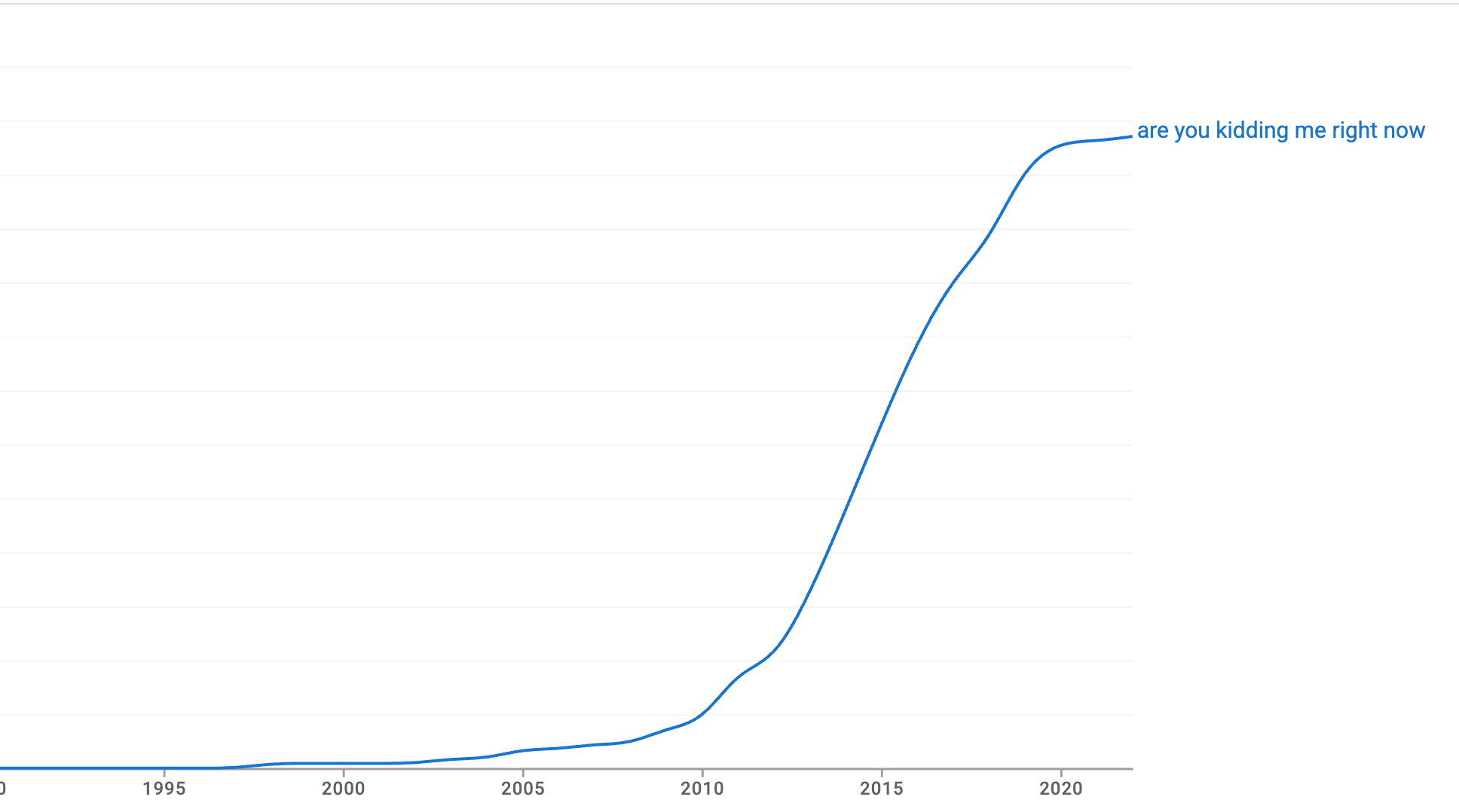Memetic phrases
« previous post | next post »
Adam Aleksic, "The insidious creep of Trump's speaking style", NYT 8/17/2025:
“Many such cases.” “Many people are saying this.”
You may recognize these phrases as “Trumpisms” — linguistic coinages of President Trump — but they’ve also become ingrained in our collective vocabulary. Since they became popular as memes during his first presidential campaign, we have begun using them, first sardonically, and then out of habit.
If you search for “many such cases” on X, you’ll see new posts of the phrase seemingly every minute, primarily applied to nonpolitical contexts like work anxiety or the real estate market. Google Trends shows both expressions increasing in usage since the mid-2010s.
Similar examples of cultural mimetics have been around ever since talking was invented — epic poetry and religious texts are full of them, and science is right there too. I documented the rise of the phrase "Lived Experience" a couple of weeks ago.
But the same sort of thing happens in less formal cultural groups, with less obvious models. I stumbled on a minor example recently, namely the phrase "Are you kidding me right now?"
Google Ngrams shows us that its frequency in published books has increased over the past few decades:

(Although interestingly, the index for British English claims no hits…)
Searching Google Books without normalizing for overall indexed volume:
| Time Range | Count |
| 1995-1999 | 0 |
| 2000-2004 | 1 |
| 2005-2009 | 1 |
| 2010-2014 | 10 |
| 2015-2019 | 20 |
| 2020-2024 | 41 |
No doubt this is leakage from (a certain group's) common usage into (a certain genre of) publications — readers may have more insight.
J.W. Brewer said,
August 27, 2025 @ 7:34 am
The google books ngram viewer shows "many such cases" peaking during the first term of Grover Cleveland (in 1886, specifically) then starting a notable decline in his second term that continued for most of the 20th century before plateauing at a much lower level circa 1980. Maybe a recent boom (primarily in the sort of texts that aren't included in that corpus?) isn't yet visible, and maybe the recent memetic usage is identifiably different than prior appearances of the three-word string. But still.
Mark Liberman said,
August 27, 2025 @ 8:26 am
@J.W. Brewer:
Indeed — there's no way we can blame Donald Trump for this pattern:
Adam Aleksic should have been more careful…
markonsea said,
August 27, 2025 @ 9:01 am
As a BrE speaker, I have no quarrel with the zero finding for "Are you kidding me right now?"
The BrE equivalent (unless I'm misunderstanding the subtext) is probably "Yer 'avin' me on, innit?"
Coby said,
August 27, 2025 @ 1:07 pm
"Adam Aleksic should have been more careful…"
What would you expect from a New York Times pundit?
Haamu said,
August 27, 2025 @ 11:37 pm
People really need to click through to the article. Neither this post nor its sparsity of comments do justice to the provocations therein. Consider:
"You could argue that Mr. Trump's language is predisposed to becoming memeified on social media platforms and is reshaping our reality as a result."
"Mr. Trump may have a greater impact on the English language than any president in the history of the United States, maybe ever."
"Mr. Trump's speech is chock-full of phrasal templates." (Our first Snowclone President?)
"Researchers at the University of Chicago have found Mr. Trump to have a quantifiably unique syntactic style compared with those of other politicians. His word choice is less predictable to large language models …" (It's interesting that increased use of phrasal templates is somehow less predictable.)
"[H]is absurd phrasal templates and discourse markers … become carriers for other types of unrelated speech. The more we repurpose, the more the meme fossilizes itself in our language, and the more we actually start to talk like Mr. Trump."
Culminating with: "The fact that we're talking like Mr. Trump could mean that we're starting to think like him as well."
Apparently, the lurking suggestion is that Trump is some sort of political prion who has triggered a cascade of cultural dementia.
Philip Taylor said,
August 28, 2025 @ 3:23 am
"Trump is some sort of political prion who has triggered a cascade of cultural dementia" — something our own pitiful Nigel Farage is clearly seeking to emulate :-(